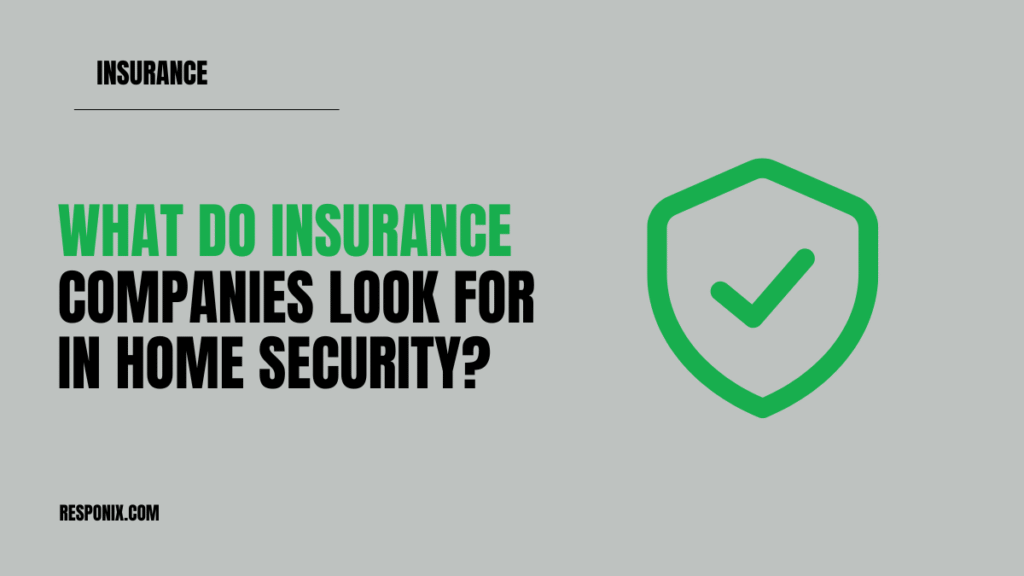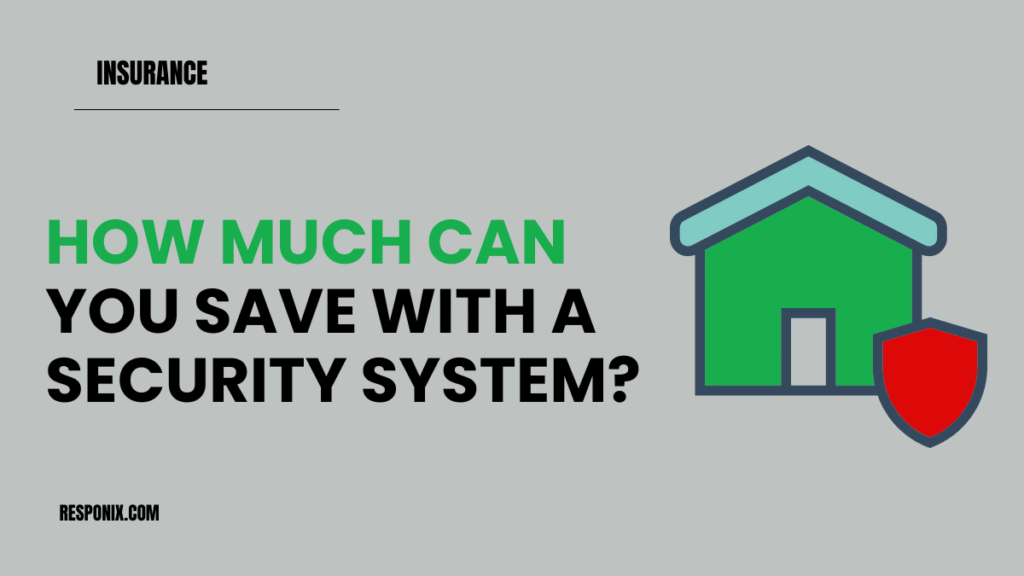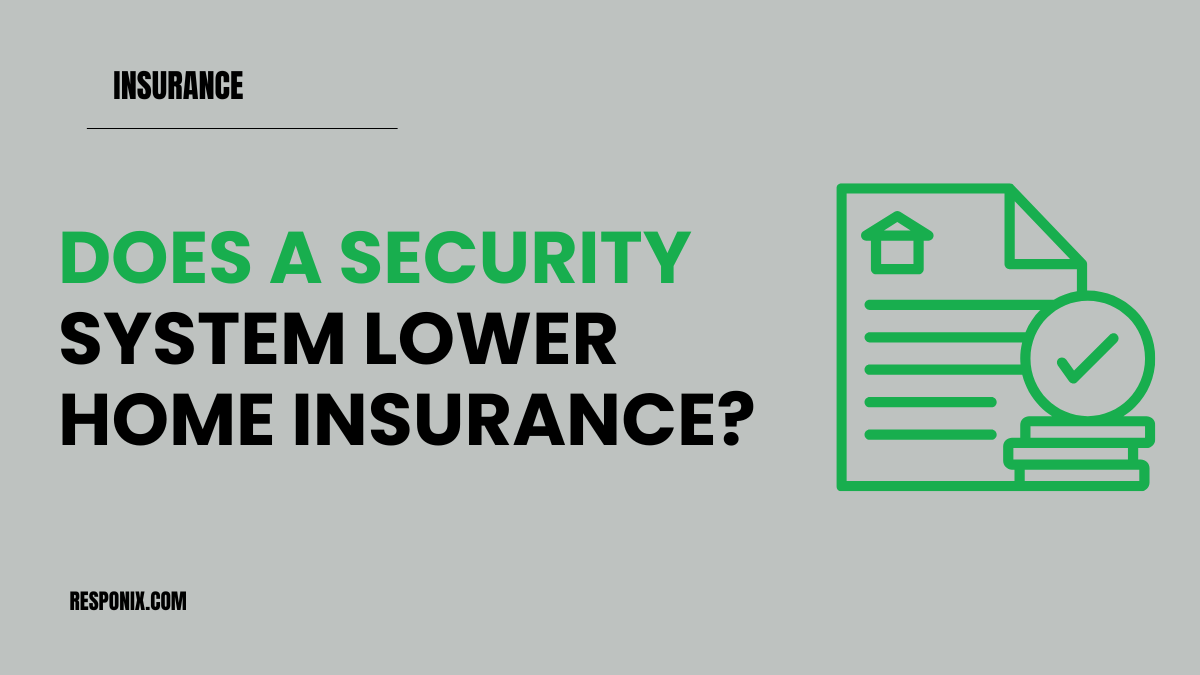Table of Contents
Why Your Home Security System Could Be the Secret to Lower Insurance Premiums
Homeowners across the U.S. often search for practical ways to cut household expenses, and home insurance is a major one. If you’re wondering “does a security system lower home insurance?”, the answer is a promising yes. Not only can it give you peace of mind, but it can also lead to significant insurance premium savings. However, not all security systems are treated equally by insurance companies, and not all policies offer the same discount.
Let’s break it all down in this comprehensive guide.
What Do Insurance Companies Look for in Home Security?

Insurers assess risk. When you lower the risk of theft or damage, they reward you—often with home insurance discounts. Home security systems are one of the most effective tools to do this. But the type and features of your system matter.
Basic vs. Advanced Security Systems
Basic systems typically include:
- Door and window sensors
- Motion detectors
- A local alarm (not monitored)
Advanced smart home security systems may include:
- 24/7 professional monitoring
- Smart doorbells and cameras
- Remote access via mobile apps
- Fire, smoke, and carbon monoxide detectors
- Flood/leak sensors
Insurers are more likely to offer higher discounts for systems with professional monitoring and multi-layered protection.
How Much Can You Save with a Security System?

According to industry leaders like Allstate and State Farm, the discount for having a home security system ranges between 5% and 20%. However, this largely depends on the insurer, your location, and the specifics of your coverage.
- Basic security system: 5%-10% discount
- Monitored alarm system: 10%-20% discount
- Smart integrated system: Up to 25% in some cases
Does Every Insurance Company Offer a Discount?
Not all insurers offer discounts just because you installed a camera. You’ll need to check with your provider. Companies like:
Often have specific requirements. Some want proof of purchase. Others may ask for a certificate of installation or professional monitoring proof.
Alarm System Benefits Beyond Insurance Discounts
While saving on premiums is great, the real value of a security system is in what it prevents. Here’s why your investment pays off long-term:
Reduced Risk of Burglary
According to the FBI, homes without security systems are 300% more likely to be burglarized.
Protection from Fire and Environmental Hazards
Modern systems include smoke, fire, and CO detectors—reducing risks from more than just theft.
Lower Claim Frequency
Less risk of break-ins means fewer claims filed, which could lead to lower premiums over time or discounts on claim-free status.
Smart Home Security: A Growing Trend
With the rise of smart home devices like Ring, Nest, and ADT Smart Home, more homeowners are turning to integrated systems. These systems can:
- Alert you and emergency services instantly
- Allow remote locking and unlocking
- Show real-time footage from any room
Many insurers are now partnering with smart device providers. For instance, Nationwide Insurance offers discounts if you use their partnered smart devices.
What Type of Systems Get the Biggest Discounts?
To maximize your insurance premium savings, consider a system that includes:
- 24/7 monitoring
- Smoke/fire and CO detection
- Surveillance cameras
- Entryway sensors
- Remote access and alerts
Most insurers consider these features to significantly reduce risk, translating into higher discount rates.
Cost vs. Savings: Is It Worth It?
Let’s do the math.
- Average cost of a basic security system: $200–$500 (one-time)
- Monthly monitoring: $20–$50
- Average home insurance premium: $1,200/year
- Average potential discount: $120–$240/year
Break-even point: Within 2–3 years, your system pays for itself in insurance savings alone—not counting the peace of mind.
What If I Rent My Home?
If you’re a renter, installing a full-fledged system might not be possible. But portable and wireless systems (like SimpliSafe or Ring) still qualify for renter’s insurance discounts in many cases.
Make sure to:
- Confirm with your landlord about installation
- Choose systems with mobile connectivity
- Contact your insurance company to verify eligibility
Proof Required: What Your Insurer Might Ask For
Before applying your discount, insurers may ask for:
- Proof of purchase
- Installation certificate
- Monitoring subscription documents
- Photos or video evidence of the system in place
Always keep receipts and documentation handy.
Avoid These Common Mistakes
Even the best systems won’t help if you:
- Don’t activate monitoring
- Ignore maintenance alerts
- Fail to secure all entry points
- Let subscriptions expire
Insurers might rescind your discount if the system isn’t active or maintained.
Real-World Case Study: ADT Users Save Big
A report from ADT highlights that homes with their monitored security services received up to 20% off insurance premiums, depending on location and provider.
What About Bundled Discounts?
Some companies offer bundled discounts when you combine home, auto, and life insurance with a security system in place. This can lead to stacked savings and better overall rates.
Other Ways to Lower Your Home Insurance Premium
Besides installing a security system, you can:
- Raise your deductible
- Bundle multiple policies
- Maintain a claim-free record
- Improve home safety (fire extinguishers, deadbolts)
- Update your home’s electrical or plumbing system
Final Thoughts: Is a Security System Worth It for Insurance Savings?
Yes, absolutely. While it’s not a one-size-fits-all answer, the combination of increased home protection and insurance premium savings makes a home security system a smart, strategic investment. From preventing theft to qualifying for a home insurance discount, it’s a win-win.
The key? Choose a reputable, feature-rich system and confirm with your insurance provider what qualifies for a discount. The savings will follow both in cash and peace of mind.
FAQs
1. How much can a security system lower my home insurance?
You can expect a discount between 5% and 20%, depending on your insurer and the system you install.
2. Do smart home devices count toward a discount?
Yes. Devices like smart locks, doorbells, and thermostats often qualify, especially if professionally monitored.
3. What’s the best type of security system for insurance savings?
A professionally monitored system with fire, smoke, and motion detection typically qualifies for the highest discount.
4. Can renters get insurance discounts for security systems?
Yes, as long as the system is portable and meets your insurance company’s criteria.
5. Do I need to notify my insurer when I install a system?
Absolutely. Always inform them and provide proof to ensure the discount is applied to your policy.


